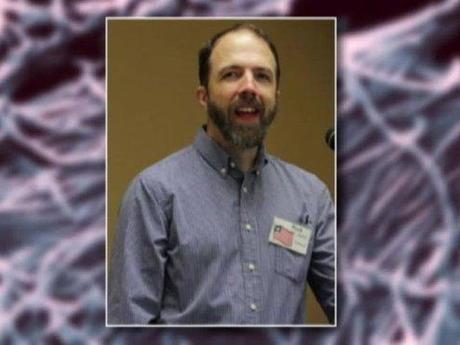
Image from http://www.kshb.com
What Has Happened
On August 29th, last Friday, Omaha, Nebraska welcomed Dr. Rick Sacra, a missionary in West Africa. However, Sacra didn’t come home alone. With him, he brought the deadly strain known as the Ebola Virus. As of now, Sacra is under treatment in a 10-bed special isolation unit at Omaha’s Nebraska Medical Center. Stationed in Liberia when he got infected, Rick Sacra is now the third American to have become infected with the Ebola Virus. Dr. Kent Brantly and Nancy Writebol also became infected with the Ebola virus while working with Ebola patients in Liberia. Both were flown into Emory University Hospital in Atlanta, Georgia. They have made full recoveries are no longer contagious and, hopefully, Rick Sacra will follow suit.
About Rick Sacra
Rick Sacra works for SIM, an aid organization that sends missionaries to Africa. He had been to Liberia for SIM before, but when he heard that his fellow missionaries had been infected, he volunteered to go to Liberia again. Sacra was not in direct contact with Ebola patients when he got infected. Instead, he was delivering babies in Monrovia, the capital of Liberia. He had taken all necessary precautions while he was in Liberia, so it is unclear how he got infected. When he got exposed to the virus, he was admitted into an Ebola 2 Care Center. As of now, he has been diagnosed with hemorrhagic fever.
The Progress of Ebola
As of now, Ebola has usurped control of Guinea, Liberia, Nigeria and Sierra Leone, leaving doctors and medical workers inundated as they try to contain a virus that is disseminating faster than they can handle. The World Health Organization (WHO) officials reported that 1,900 people are now dead and 20,000 people are in danger of succumbing to Ebola’s lethal infection. However, people have started to fight back against this force. Earlier this week, the National Institute of Health began the clinical trials for the Ebola vaccine. This was the first case of an Ebola vaccine tested on humans. Developed by the U.S. National Institute of Allergy and Infectious Diseases and a company called GlaxoSmithKline, the vaccine is administered by an injection in the deltoid muscle of the arm, first in a lower dose, and then later in a higher dose after the safety of the vaccine has been determined. No one will actually be infected with the Ebola Virus. The vaccine did extremely well in earlier trials with chimpanzees and, after the first few people are tested with the vaccine, the clinical trial will then turn its eye on 20 men and women, ages 18 to 50. Hopefully, a fully-fledged vaccine can be created in order to protect the remaining people who are in danger of being infected.

